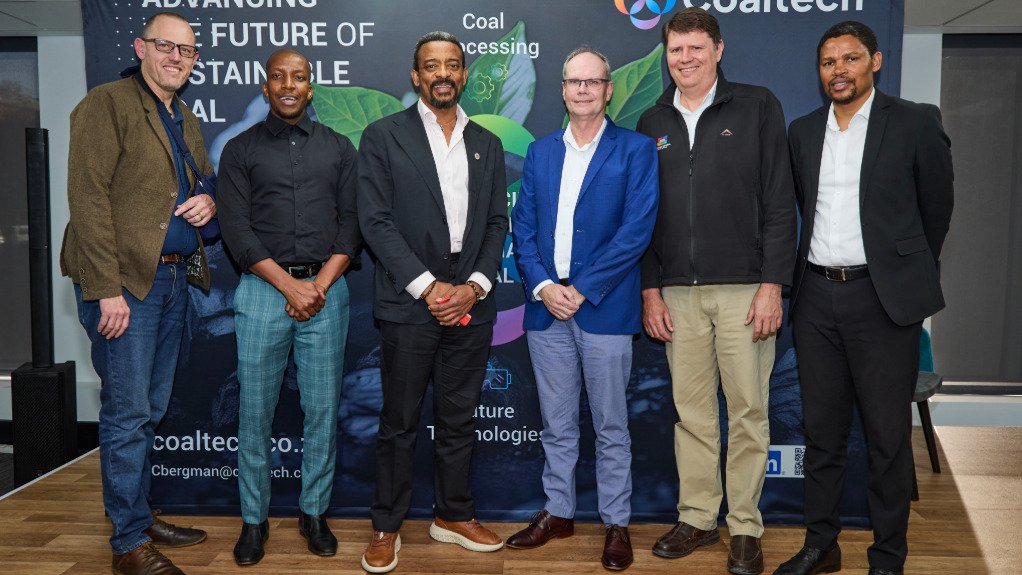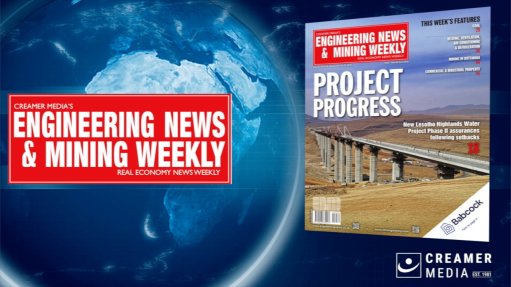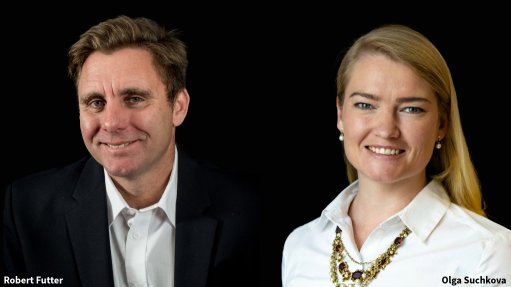Clean coal tech required in energy transition


FUTURE OF COAL Coaltech’s Future Technologies research focus aims to drive progress in carbon emissions management and clean coal technologies through stakeholder collaboration
Research association Coaltech has shifted its focus to driving clean coal technologies this year, aiming to significantly reduce emissions from coal mining and combustion of the energy source by promoting clean energy transitions along with exploring alternative uses of coal, says Coaltech CEO Avhurengwi Nengovhela.
Currently, Coaltech is funding several environmental projects centered on nature-based solutions, including rehabilitating mine-impacted land to support vegetation resilience, and carbon sequestration to combat climate change.
One such initiative is Coaltech’s Technology to Condition Plants for Rehabilitation project, which is being implemented at various coal mining rehabilitation sites across South Africa. The project investigates the integration of rhizospheric soil bacteria with vegetation to improve the resilience and growth of plants on rehabilitated coal mine lands. The study emphasises microbial communities’ critical role in establishing self-sustaining ecosystems, Nengovhela explains.
Another initiative underway at various South African coalfields is Coaltech’s Carbon Capture and Emissions Footprint Reduction in Post-Mine Agricultural Land Use project.
“This project explores regenerative agriculture and agroforestry practices to enhance carbon capture and offset emissions in post-closure coal mine lands,” Nengovhela explains, adding that the study highlights conservation agriculture as a pivotal method for increasing soil organic carbon and reducing greenhouse gas emissions.
At the Highveld coalfields in Mpumalanga, Coaltech is conducting its Phytomining and Hyperaccumulation of Constituents in Rehabilitated Soils project. The project examines the potential of certain plant species to hyperaccumulate rare earth elements (REEs) and heavy metals from coal-contaminated soils, focusing on leveraging these plants for sustainable rehabilitation and potential economic value, Nengovhela says.
In addition, the organisation is prioritising carbon capture and use solutions (CCUS), with plans to collaborate with various industry entities, such as scientific research organisations, to establish a project in this field.
In terms of coal processing, Coaltech is exploring the reclamation of coal discards, addressing environmental concerns while identifying whether coal discard dumps, accumulated over 140 years of coal mining in South Africa, could serve as sources of REEs which could help create new economic pathways for businesses and communities.
The organisation’s research could enable coal miners to diversify their operations and participate in the provision of other minerals including REEs, thereby playing a more significant role in the transition discourse.
Beyond REEs, Coaltech is exploring innovative uses for the carbon found within coal, such as for producing graphene and carbon fibre for high-value applications.
Further, he also points out that a major project completed with tertiary education institution the University of the Witwatersrand in 2023 investigated alternative pathways for coal use, with Coaltech planning to advance this research going forward.
Mining
In terms of coal mining, recent projects undertaken by Coaltech have focused on managing overburden effectively to support successful land rehabilitation as well as the management of spontaneous combustion to mitigate greenhouse gas emissions and maintain the integrity of a mine’s resource base.
In addition to these projects that have been completed, additional projects are underway with more scheduled to be added from April 2025, aligning with the start of Coaltech’s new financial year, points out Nengovhela.
In line with this focus, Coaltech is conducting its Practical Guidelines for Managing Spontaneous Combustion in Opencast Coal Mines study at the Tweefontein and Impunzi highwalls, in Mpumalanga. This study aims to develop best practices for preventing and managing spontaneous combustion in coal mines. It incorporates early detection methods and treatment strategies, such as water sprays and sand cladding, with emphasis on sustainable and safe mining operations.
Clean Coal Technologies
Nengovhela emphasises that a holistic approach to clean coal technologies can be achieved through evaluating and integrating improvements across the entire coal value chain, from mining to processing and combustion.
One such improvement is washing coal early in the process, which helps to reduce harmful emissions such as sulphur oxides and nitrogen oxides, he explains.
Further, Coaltech is currently evaluating its role around high-efficiency, low-emissions technologies, largely driven by progress in countries such as China.
“The Chinese have shown, and continue to demonstrate, that coal as an energy source can and should coexist with renewables,” Nengovhela says.
However, before implementing such technologies locally, Coaltech acknowledges the need for rigorous research to ensure suitability for South African power stations and conditions.
Coaltech also focuses on work to upgrade coal during processing to lower emissions during combustion, as even marginal gains can contribute significantly to cleaner coal use, says Nengovhela.
He explains that Coaltech has conducted extensive research on upgrading coal, and many of its findings have been adopted by its primary members to enhance efficiency gains and improve environmental performance.
Barriers to Advancement
Despite various advancements in increasing the sustainability of the coal industry, Coaltech notes that several key challenges continue to impact progress.
A key challenge among these is limited funding for research. Owing to financial constraints, many high-value, impactful projects cannot proceed, hindering both Coaltech and the broader coal sector, explains Nengovhela.
“We currently have to limit the number of projects we carry out. Even though some of the projects that we will not take forward are really high value, impactful projects, we have a limit in terms of what we are able to fund,” he elaborates.
Comments
Press Office
Announcements
What's On
Subscribe to improve your user experience...
Option 1 (equivalent of R125 a month):
Receive a weekly copy of Creamer Media's Engineering News & Mining Weekly magazine
(print copy for those in South Africa and e-magazine for those outside of South Africa)
Receive daily email newsletters
Access to full search results
Access archive of magazine back copies
Access to Projects in Progress
Access to ONE Research Report of your choice in PDF format
Option 2 (equivalent of R375 a month):
All benefits from Option 1
PLUS
Access to Creamer Media's Research Channel Africa for ALL Research Reports, in PDF format, on various industrial and mining sectors
including Electricity; Water; Energy Transition; Hydrogen; Roads, Rail and Ports; Coal; Gold; Platinum; Battery Metals; etc.
Already a subscriber?
Forgotten your password?
Receive weekly copy of Creamer Media's Engineering News & Mining Weekly magazine (print copy for those in South Africa and e-magazine for those outside of South Africa)
➕
Recieve daily email newsletters
➕
Access to full search results
➕
Access archive of magazine back copies
➕
Access to Projects in Progress
➕
Access to ONE Research Report of your choice in PDF format
RESEARCH CHANNEL AFRICA
R4500 (equivalent of R375 a month)
SUBSCRIBEAll benefits from Option 1
➕
Access to Creamer Media's Research Channel Africa for ALL Research Reports on various industrial and mining sectors, in PDF format, including on:
Electricity
➕
Water
➕
Energy Transition
➕
Hydrogen
➕
Roads, Rail and Ports
➕
Coal
➕
Gold
➕
Platinum
➕
Battery Metals
➕
etc.
Receive all benefits from Option 1 or Option 2 delivered to numerous people at your company
➕
Multiple User names and Passwords for simultaneous log-ins
➕
Intranet integration access to all in your organisation


















